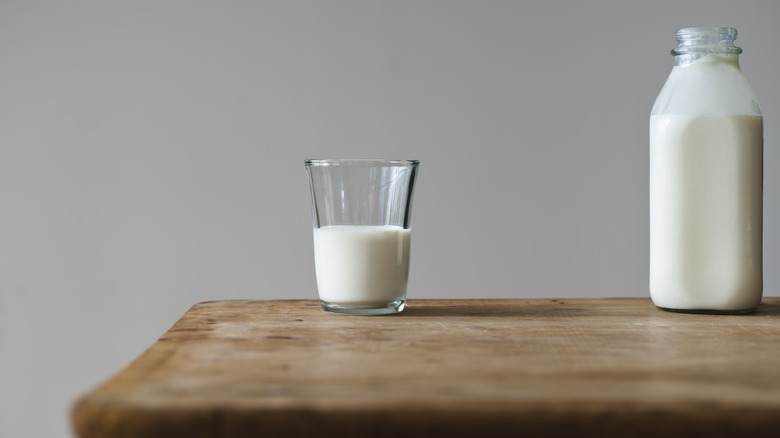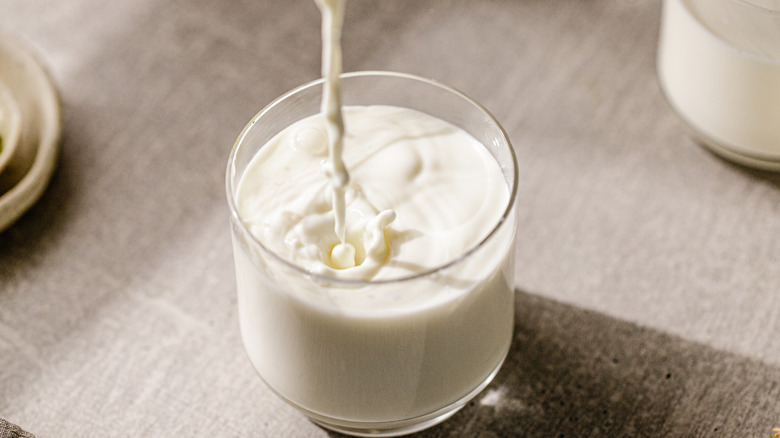How Milk Became The Official State Drink Of North Carolina
In recent years, dairy alternatives like oat milk, cashew milk, and sometimes even starchy potato milk have descended on kitchens, coffee bars, and bakeries. During milk's heyday as America's sippable sweetheart, classic, creamy cow's milk starred in campaigns and accessorized pop culture's most recognizable upper lips. In recent decades though, it appears the public's attitude towards basic dairy milk has soured.
Milk remains requisite lunch tray fare, yet in many circles, the drink is out to pasture. The once-beloved beverage still holds a place of honor in North Carolina, however, where it has become a state symbol next to other local icons like sweet potatoes, scuppernong grapes, channel bass, brook trout, blueberries, and strawberries. Southern staples Pepsi, Cheerwine, and Sundrop all have ties to the Tar Heel State, yet milk ultimately secured the title of the North Carolina state drink in 1987, a moniker it has held onto for nearly 40 years.
The drink milking its title
The North Carolina Milk Commission first requested the title be bestowed upon the beverage. While opposing voters vied for a drink with a cultural or historical connection to North Carolina, milk was victorious, as the bill passed in the Senate with a tally of 39 to 3 and 93 yes votes and 3 nos in the House. At the time the law was passed in 1987, the state was producing 179 million gallons of milk annually.
In today's dwindling dairy economy, fluid cow's milk consumption has been on a steady decline. According to the United States Department of Agriculture, the downward trend has been ongoing for over 70 years, plummeting rapidly in the 2010s. While not the only factor observed, the USDA did note the popularity of plant based alternatives as contributor to the dairy slump.
Although it's not the country's most popular coffee topping, milk remains important to North Carolina's economy. According to North Carolina State University, almost 1 billion pounds of milk are produced in North Carolina every year, where most of the dairy farms are family owned and run. North Carolina also isn't the only state to recognize the milk as a symbolic state staple. Of 30 states with a designated state drink, 22 of them have given the title to milk.

